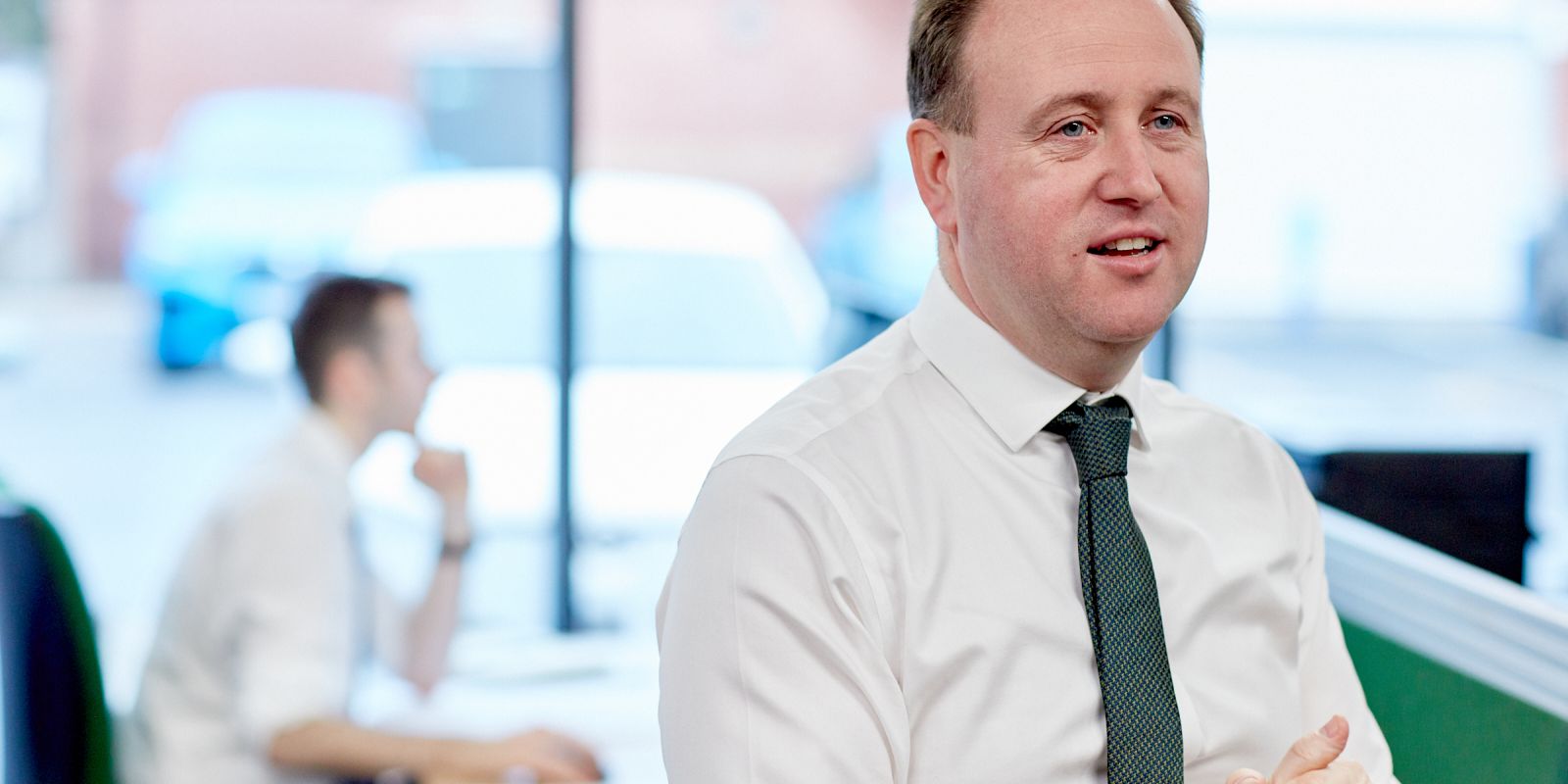Lee Marshall is the Managing Director of Viridis, a building services firm dedicated to providing sustainable solutions for the built environment. The company is based just over the border in Newark but Lee and the team are also active members of Team Lincolnshire. A chartered engineer with bags of experience in design engineering, installation and renewable technologies across a range of sectors, Lee is passionate about creating innovative, low-cost, low-energy building services, and firmly believes that green solutions don’t have to cost the earth.
“The heart of our work is net zero, low carbon and energy efficiency," says Lee. "At Viridis, we know the importance of buildings and how every single detail in their construction or renovation has an impact on their users and the environment. We are therefore committed to ensuring that our designs consistently meet or exceed the RIBA 2030 Challenge."
Working alongside architects and other project team partners, Lee's company implements net zero energy-saving elements and brings intelligent, innovative and above all sustainable building services to projects across a wide range of sectors. From incorporating core sustainable principles at the earliest stages to delivering low-carbon, low-cost lighting, water and energy systems, Viridis brings joined-up thinking and a pragmatic approach to every project.
Lee is also passionate about providing opportunities for budding engineers who are enthusiastic about sustainability and supporting them with any part-time education or training that will benefit their future. Their Falkirk office has been working with a local college over the last few years to nurture former pupils by providing support to give them the best start within the engineering industry, and a similar programme is being developed locally.
Lee is also a champion for thinking outside the box and not following the approved path, but instead allowing time for new ideas and concepts. For example, Lee considers Passivhaus to be overrated and recently explored the invention of the light bulb, and how its impact inadvertently caused the decline of modern construction, in a number of trade publications.
“There is no disputing the economic and social impact that the arrival of the light bulb had on our lives,” he says. “However, it led to the death of large, airy windows that let natural light flood in, and this continued into the post-war, through the housing boom of the 1950s and 60s and into the social housing growth of the 1970s and 80s. With the advent of LED lighting, our homes are more energy-efficient to run – not to mention warmer thanks to modern insulation and double glazing – but we haven’t updated our construction methods."
Lee believes this needs to change. "I firmly believe that if you have a good, sustainable housing offering that is scalable then there is an opportunity to transform the market, but designs need to be more creative. For example, there is a huge waste of space and volume with traditional triangular roof trusses where up to 30% of the building is lost. By lifting the first floor a few hundred millimetres and raising the bedroom ceiling further into the loft, you could push up the space by about ten feet and put in bigger windows, creating nice features such as vaulting, reducing energy consumption and transforming how we live.
“We could also redefine our living spaces by changing the layout and geography of a house. By locating the stairs at the back/north face of the property, all the downstairs rooms could be at the front of the house with bigger front or south-facing windows, creating a larger, sun-drenched front garden that is accessible from both the kitchen and living area. If an entire neighbourhood is organised in this way, it creates a sensitive layout that gives privacy but maximises daylight – reducing the reliance on artificial light.”
As a practice, Viridis knows that being sustainable and saving CO2 emissions is about spending as little as possible in order to save as much as possible, and Lee is currently working on a selection of social housing which gives properties bigger windows and a higher floor-to-ceiling height.
Lee is passionate about flying the flag for sustainable design and construction and joined Team Lincolnshire to support the development of opportunities across Lincolnshire. “We want to ensure that Lincolnshire is at the forefront of environmental design and we have joined Team Lincolnshire to help them with their efforts,” he said.
For more information about Viridis Building Services, visit viridisbsl.co.uk.
Watch Lee's short video here.
Click here to read our latest newsletter and watch other Lincolnshire Voices videos.


